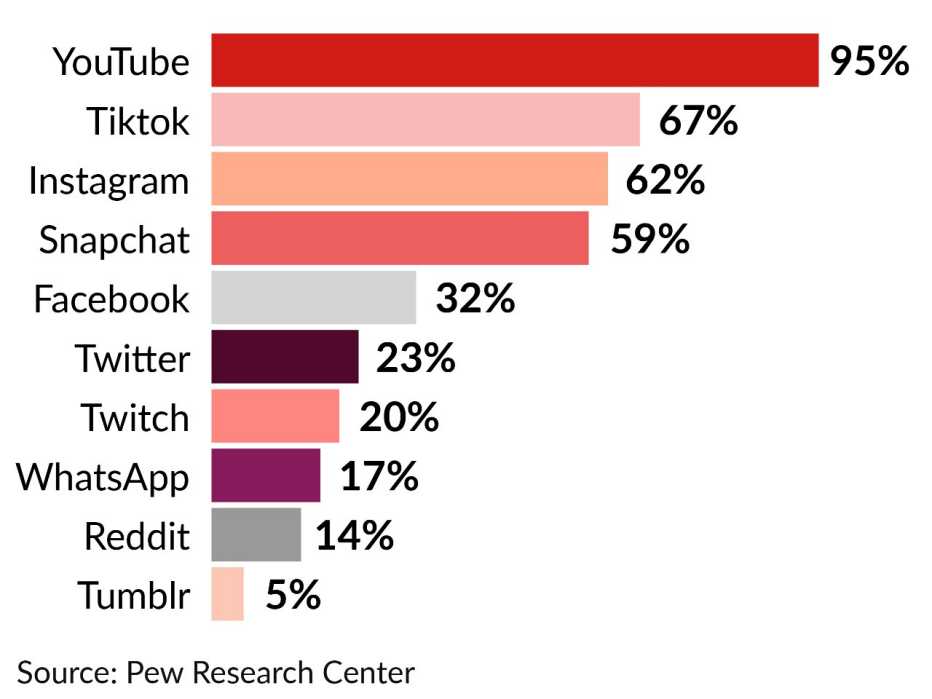AARP Hearing Center
In talking to teenagers about their virtual lives, you’ll frequently hear the phrase, “Strict parents create sneaky kids.”
Kids face real dangers to their privacy online, so parents and grandparents have reason for concern. Stranger danger isn't something kids face only when they go outside today. It's something every child with a smartphone holds in the palm of their hand, 24/7.
So what do parents need to know about online threats? And what should they do in a world where teens spend more time on the photo- and video-sharing apps Instagram and Tiktok, an app for sharing short videos in a vertical format, than they do with their families? With new apps and social networks cropping up all the time, how can a parent or grandparent keep up?
The first step is for parents to understand the dangers. Cyberbullying in the form of subtle indirect references that mock but don't specifically name their target, called subtweets on the social media site Twitter, can lead to depression and, in tragic cases, suicide.
Sharing too much personal information can lead to stalking or even put teens at risk of prosecution when using apps related to reproductive health in a post Roe v. Wade environment. And regulations are thin or nonexistent on sharing personal information for profit.


Teens in Crisis: A Guide for Parents
Help your kids navigate online threats, skyrocketing anxiety, sexual pressure
Teenagers' digital behavior may affect them later in life when getting into college, getting a loan or getting a job. The New York Times hired and then fired a columnist because of tweets, short messages on Twitter, that she had posted years in the past. But often applicants are rejected outright based on digital records they are completely unaware of.
Data collection is legal, not well regulated
In elementary and middle school, most children have had some education about online safety, thanks to the Protecting Children in the 21st Century Act that became law in 2008. Kids are cognizant of the threat of hackers and scammers — certainly more so than adults 50 and older.
“But things are more dangerous now because we have a surveillance economy of apps that collect information,” says Jason Kelly, associate director of digital strategy at the Electronic Frontier Foundation (EFF). The nonprofit consumer advocacy group, founded in 1990, is based in San Francisco.
Personal data, including birth dates, location history, religion and school information, can be collected legally and sold and shared with other companies, Kelly says. “And that information is not really protected in any way.”
The solution for some concerned parents is to try to monitor their children's online lives to make sure they're not oversharing. But that can create a false sense of security. If you follow their social media accounts, such as Instagram, they'll know and may simply set up a false account, known as a Finsta, Kelly says.
Social media is far more than Facebook
Insisting that your kids become your Facebook friends also won't do. Teens today don't really use Facebook.
As of July 2022, users 13 to 17 represented 4.4 percent of Facebook’s total U.S. audience with more than a third age 45 or older, according to Warsaw-based NapoleonCat, a social media marketing tool. Earlier this year, more than two-thirds of 13- to 17-year-olds told Washington-based Pew Research Center pollsters that they never use Facebook.
Even if your kids do allow you to friend them, they can prevent you from seeing their posts in the same way that you can filter what your Facebook friends see. And they may be more expert at managing their privacy settings than you are.
Some parents insist on having access to their children's smartphones so they can check their activity. However, the youngest generations — unlike baby boomers, Generation X and even millennials — grew up online. Generation Z, born from 1997 to 2012, according to Pew Research, is more sophisticated about using technology to thwart spot checks.
One example: Decoy apps, disguised to look like other programs such as calculators, are commonly used to hide other apps, photos, texts and videos inside password-protected “vaults,” most often on the smartphone itself. Moreover, if you’ve installed monitoring software to prevent your teens from downloading a particular app or material inappropriate for their age, a decoy app can hide it from the software and your view but let your kids see the files any time they want.
Stranger danger and privacy threats aren’t lurking around every corner. Gen Z users are also adept at leveraging the good of social networking and smartphone apps:
• Kids with chronic illnesses, such as diabetes, find critical support systems on Instagram, sometimes in educating others and challenging assumptions or by just ranting about the daily frustrations of blood testing and insulin. Sometimes being on Insta, what users often call the app, means they can be in a place where no one knows about their condition because they’ve created two profiles.
• Students whose study groups disbanded during the pandemic reconstructed them on Discord, an app originally created to bring social media to multiplayer gaming. The local groups continue and bigger national study groups are on the platform, helped because the app’s strength is its ability to allow chat through audio, text and video, and share a computer screen.
• The free teleconferencing app Zoom became the platform for a new group, Teens Teach Technology, founded two months after coronavirus lockdowns began. Asmita Mittal, a high school sophomore at the time, started the original chapter on Long Island, New York. It has expanded to 18 states and seven countries in a little more than two years. High school volunteers teach classes on creating social media, Doordash and Netflix accounts in addition to showing older adults how to spot scam emails and calls.



































































